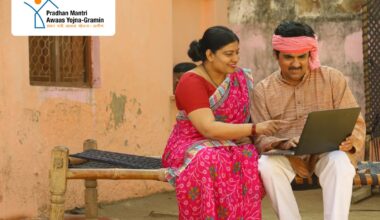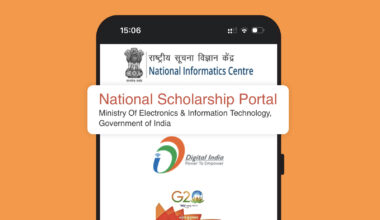Every day, countless farmers find themselves trapped in the cycle of informal credit, unable to secure the necessary financing for their crop production. Keeping this underlying concern in mind, the government of India has come up with the Kisan Credit Card scheme to provide proper and timely credits to farmers. The scheme was launched in August 1998 with a view to empower Indian farmers and finance their farming operations effectively.
Table of Contents Show
Notably, a Kisan Credit Card (KCC) allows farmers to acquire short-term credits for financing their cultivation and other non-farming expenses. These short-term loans are available at low-interest rates to encourage easy payment of loans by farmers. If you are unaware of the details of this beneficial scheme, then this blog help you understand what is KCC (Kisan Credit Card Yojana) in a better way.
What is Kisan Credit Card (KCC)?
Kisan Credit Card Yojana, also known as Pradhan Mantri Credit Card Yojana, is a government scheme aimed at reducing the financial burden of farmers in maintaining their farming operations. Under this scheme, farmers are provided short-term credits to finance their agricultural production and maintain their farms. The credit limit is determined by considering integral aspects like cultivated crops, financial margins and maintenance expenses.
Commercial banks, regional rural financial institutions, and state cooperatives offer a Kisan Credit Card to farmers involved in agriculture, fisheries, animal husbandry, and related practices. The scheme is implemented by NABARD (National Bank for Agriculture and Rural Development) and has reduced the reliance of farmers on informal credits. The eligible farmers are also given the flexibility to apply for this scheme via both online and offline modes.
Objectives of Kisan Credit Card Scheme
- Kisan Credit Card aims to provide financial support for short-term credit needs in cultivation.
- KCC is designed to assist farmers in managing post-harvest expenses.
- The Kisan Credit Card intends to meet the consumption requirements of farmers and their households.
- It provides working capital for maintaining farm assets and activities related to agriculture.
- KCC also aims to meet the investment credit requirements for agriculture-related activities.
Key Benefits of Kisan Credit Card Scheme
The Kisan Credit Card scheme offers more benefits than only fulfilling short-term credit requirements. Here are the notable offerings that come with Kisan Credit Card:
- The scheme allows farmers to take credit up to the threshold limit of INR 1.6 lakhs (without any collateral). However, the credit limit extends to INR 3 lakhs if financed with collateral.
- It allows farmers to take credit at a reasonable interest rate. Note that these rates of interest are subject to change with different banks.
- Farmers are given the flexibility to repay the loan in small monthly instalments.
- Cardholders under Kisan Credit Card Yojana are eligible to take benefits of government subsidies for agricultural supplies like machinery.
- Farmers are also provided personal accident insurance coverage for up to INR 50,000 for any future mishappening.
Eligibility Criteria of KCC scheme
Farmers must meet the following eligibility criteria to apply for Kisan Credit Card and reap its benefits:
- A farmer must have landholding for agricultural purposes.
- A farmer must be in the age bracket of 18-75 years.
- A farmer must have a bank savings account.
- A farmer must have rented land for cultivation if he/she doesn’t own one.
- The farming land must be fertile.
- A farmer must have a well-structured and effective plan for utilising the loan towards crop production or other agricultural activities.
Documents Required for PM Kisan Credit Card application
While applying for Kisan Credit Card Yojana, a farmer must have the following documents ready:
- Proof of identity (any one of the following):
- Aadhaar card
- Voter ID card
- PAN card
- Driving license
- Proof of address (any one of the following):
- Aadhaar card
- Utility bills (electricity bill, water bill, etc.)
- Bank statement with current address
- Rent agreement
- Voter ID card
- All relevant documents related to land
- Passport-size photo of the farmer
- Additional documents submission like PDC (post-dated cheques) on demand by the credit-issuing financial institution
Interest Rate and Processing Fee on Kisan Credit Card Scheme
The credit limit and interest rate of the Kisan Credit Card vary between different banks. On average, the interest rates for KCC range from 2% to 4%. The government also offers various incentives and programs regarding interest rates for farmers, which are based on the cardholder’s overall credit and repayment history. Additionally, the issuing bank has the discretion to impose additional fees and charges, such as processing costs, insurance premiums (if applicable), land mortgage deed expenses, and others.
How to Apply for Kisan Credit Card scheme?
Once an applicant meets the eligibility criteria and gathers all the required documents, he/she can proceed with the Kisan Credit Card application through convenient online or offline modes.
Online application Process
Follow the below-mentioned steps to apply for the Kisan Credit Card scheme via online mode:
- Visit the bank website that provides Kisan Credit Card.
- Locate the option for “Kisan Credit Card” on the bank website.
- Click on the “Apply Now” option and wait till you are redirected to the application form.
- Fill in the application form and attach all the required documents.
- Submit the form and wait for three to four working days to receive a revert from the bank.
- If you get qualified, then you may receive a call from the bank to discuss further steps in the process.
Offline Application Process
To apply for Kisan Credit Card offline, follow these simple steps:
- Visit the bank branch that offers Kisan Credit Card.
- Seek the application form from bank executives and fill in all the required details.
- Submit all the required documents. (The bank executive may assist you in completing all the formalities and getting you the loan.)
- If your requested loan amount exceeds INR 1.6 lakhs, then the bank executive may ask you to submit collateral for security purposes.
- Once the entire process is done, the farmer may receive the requested credit amount within the stipulated time provided by the financial institution.
How to Apply for Kisan Credit Card scheme under PM Kisan Samman Nidhi Scheme?
Follow these steps to apply for Kisan Credit Card scheme under PM Kisan Samman Nidhi Scheme-
- Fill out a one-page form for the KCC Loan Scheme, which can be found on the websites of commercial banks.
- Provide all necessary basic information, such as details about the crop sown and land records.
- Submit the completed form to the Common Service Centers (CSC), who will then forward the forms to all banks.
How to Check KCC Balance?
- The application process for a Kisan Credit Card can be done online through any bank that offers KCCs.
- To inquire about the balance on your Kisan Credit Card, you can contact the customer service department of the respective bank.
- Alternatively, you can also check the balance on your Kisan Credit Card by accessing the bank’s website.
What is Electronic KCC?
The Electronic Kisan Credit Card (EKCC) is a digital version of the traditional Kisan Credit Card (KCC). It is an initiative by the Government of India to promote digitalization and simplify the process of availing credit facilities for farmers.
The EKCC enables farmers to access credit facilities digitally, eliminating the need for physical documentation and paperwork. It is linked to the farmer’s Aadhaar card and operates on a digital platform, allowing farmers to apply, manage, and track their credit facilities online.
Through the EKCC, farmers can avail themselves of short-term credit for agricultural activities, including cultivation, post-harvest expenses, consumption needs, and working capital requirements. The card provides access to credit facilities at affordable interest rates and flexible repayment options.
The EKCC also integrates various government schemes and subsidies related to agriculture, enabling farmers to benefit from financial incentives and support programs.
Overall, the Electronic Kisan Credit Card aims to streamline the credit delivery process, enhance financial inclusion, and empower farmers with digital tools to manage their credit needs effectively.
KCC Customer Care
Here are the details for KCC Customer Care-
- Toll Free Number- 1800115526 or 011-24300606
- Email – [email protected]
You can also connect with the online Kisan E-Mitra helpdesk on the Kisan Credit Card official website at- https://pmkisan.gov.in/.
Conclusion
Kisan Credit Card or KCC is the government credit assistance scheme for farmers engaged in agricultural activities, fishing and animal husbandry. NABARD implemented the scheme intending to encourage and empower farmers to rely less on informal sources of credit. Further, Kisan Credit Card Yojana aims to reduce the financial burden of farmers by giving them short-term flexible credits at lower interest rates. By and large, this comprehensive credit assistance allows farmers to maintain their farming operations without any hassle.








